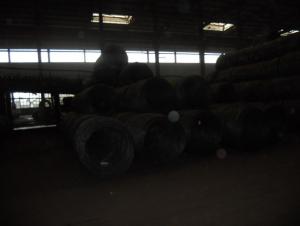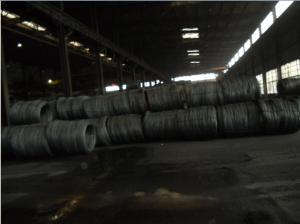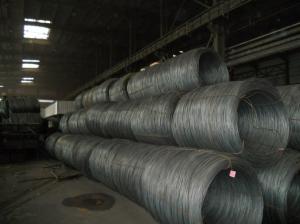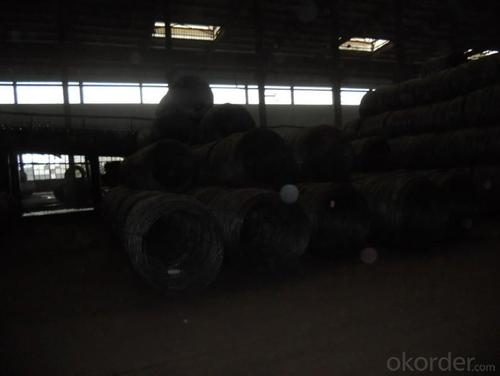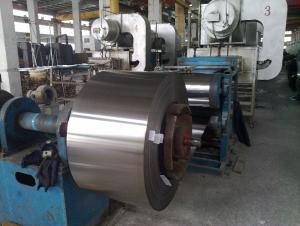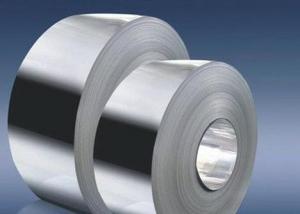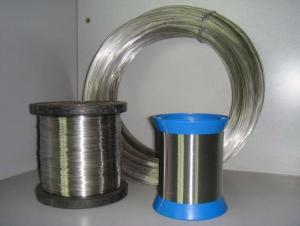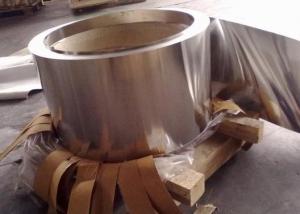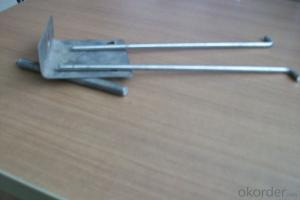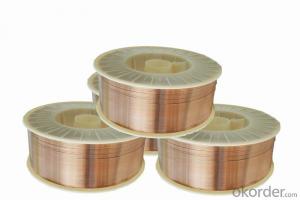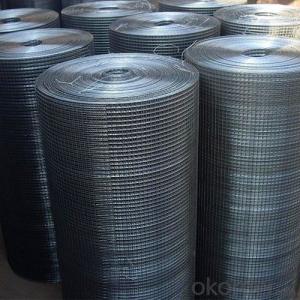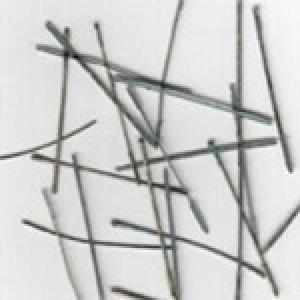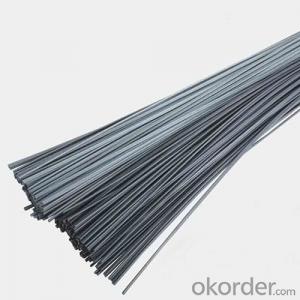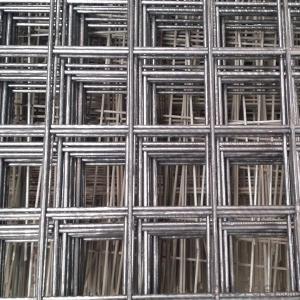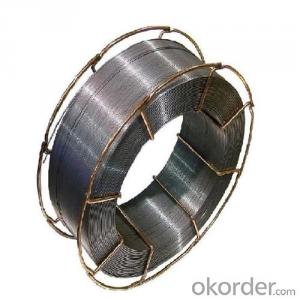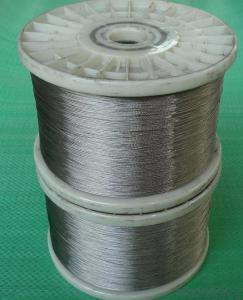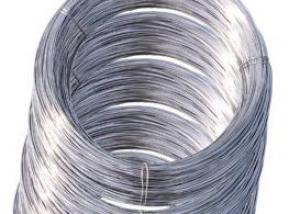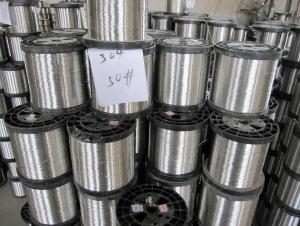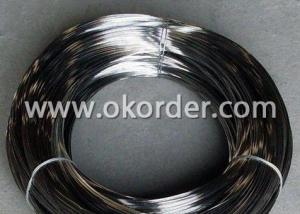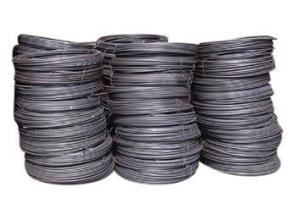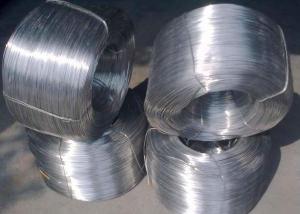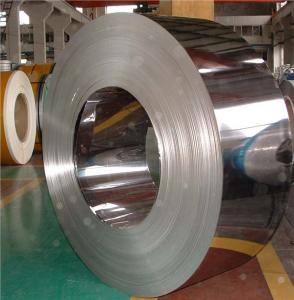Cheap Stainless Steel Wire
- Loading Port:
- China Main Port
- Payment Terms:
- TT or LC
- Min Order Qty:
- 20 ton m.t.
- Supply Capability:
- 20000 ton m.t./month
OKorder Service Pledge
OKorder Financial Service
You Might Also Like
Cheap Stainless Steel Wire
Application Of Cheap Stainless Steel Wire
With bright surface, slight magnetism and no cracks on forming, is widely used in bicycle fittings, kitchen and sanitation tools, goods shelf, pet cages, gill racks, decorative handles and baskets, food and medical machinery accesses, etc.
Advantage Of Cheap Stainless Steel Wire
Our range of Wire made of Stainless Steel are not only known for their variety but are also known for their good quality, long life and very reasonable prices. Quality and service is our first priority, we effectively use technically advanced machinery equipment and the expertise of our work to deliver our stainless steel wired products
General Information Of Cheap Stainless Steel Wire
Size | 5.5/6.5/7.5/9/9.5/11/12/13/15/16/18/20/22/23mm |
Material | 304,304L,316,316L ,321 etc. |
Standard | AISI,JIS,GB,DIN |
Finish | Black, bright finish |
Testing | Each heat number and batch must be tested for both chemical and mechanical properties |
Property | Stainless steel wire, Stainless steel wire rod, stainless steel |
Quality | prime |
Manufacturing Process | factory direct sale |
Surface Treatment | Black, bright finish |
Main Grade | 304,321,316,316L,309,310,309H,310S |
Dilvery time | 20days or depend on order quantity |
Container | 20days or depend on order quantity |
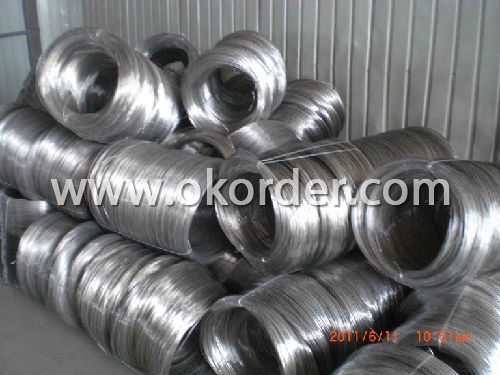
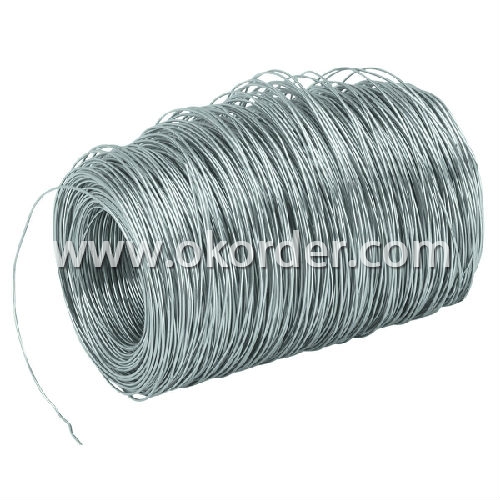
- Q: What are the different types of stainless steel wire used for safety wire?
- Safety wire applications commonly use various types of stainless steel wire. These include: 1. The most frequently used stainless steel wire for safety wire is Type 302/304. It is a versatile stainless steel that offers good strength and corrosion resistance. It finds application in various industries, such as aerospace and automotive. 2. Type 316 stainless steel wire is renowned for its exceptional resistance to corrosion, especially in environments exposed to saltwater or other corrosive elements. It is commonly used in marine applications and industries requiring high levels of corrosion resistance. 3. Type 17-7 PH is a precipitation-hardening stainless steel wire that combines excellent strength with good corrosion resistance. It is often preferred in high-stress applications or situations demanding higher strength, like in aircraft. 4. Type 321 stainless steel wire contains titanium, making it highly resistant to intergranular corrosion. It is frequently utilized in applications involving elevated temperatures, such as exhaust systems or high-temperature environments. 5. Though not as widely employed in safety wire, Type 430 stainless steel wire offers good corrosion resistance and is suitable for applications exposed to mild corrosive elements. In conclusion, the selection of stainless steel wire for safety wire applications depends on specific requirements, including strength, corrosion resistance, and temperature resistance. Choosing the suitable type of stainless steel wire is crucial for ensuring safety and reliability in wire performance.
- Q: Is stainless steel wire suitable for wire rope sheaves?
- Yes, stainless steel wire is suitable for wire rope sheaves. Stainless steel is known for its corrosion resistance and durability, making it a suitable choice for applications where the wire rope sheaves may be exposed to harsh environments or corrosive substances. Additionally, stainless steel wire has high tensile strength, allowing it to withstand heavy loads and provide reliable performance.
- Q: Can stainless steel wire be used for sifting and sieving applications?
- Yes, stainless steel wire can be used for sifting and sieving applications. Stainless steel wire mesh is known for its durability, corrosion resistance, and ability to withstand high temperatures. These properties make it ideal for use in various industries where sifting and sieving are required, such as food processing, pharmaceuticals, and mining.
- Q: Can stainless steel wire be used for safety wire?
- Yes, stainless steel wire can be used for safety wire. Stainless steel wire is known for its strength, durability, and resistance to corrosion, making it an excellent choice for safety wire applications. Safety wire is commonly used to secure fasteners and prevent them from loosening or vibrating loose. Stainless steel wire's high tensile strength ensures that it can withstand the necessary tension required for safety wire applications, providing a reliable and secure fastening solution. Additionally, stainless steel wire's resistance to corrosion ensures that it will maintain its integrity even in harsh environments, further enhancing its suitability for safety wire use.
- Q: How is stainless steel wire cleaned and maintained?
- Achieving effective cleanliness and maintenance for stainless steel wire can be accomplished by adhering to a few simple procedures. Initially, it is crucial to eliminate any surface dirt or debris by gently wiping the wire with a soft cloth or sponge that has been saturated in mild soap and warm water. This course of action will serve to prevent potential scratching or harm to the wire. In cases where stubborn stains or marks are present on the wire, the utilization of a non-abrasive cleaner specifically formulated for stainless steel is advisable. These cleaners are typically obtainable in liquid or spray form and should be applied to the wire in accordance with the instructions provided by the manufacturer. It is of utmost importance to avoid employing abrasive cleaners, bleach, or harsh chemicals, as these substances can inflict damage upon the surface of the stainless steel. Following the cleaning process, it is essential to thoroughly rinse the wire with clean water in order to eliminate any residual soap or cleaner. Proper drying procedures are vital to prevent the formation of water spots or corrosion, therefore it is recommended to employ a soft dry cloth to completely dry the wire. Should any moisture be allowed to remain on the surface, it has the potential to encourage the growth of rust or other forms of corrosion. In order to sustain the luster of the stainless steel wire and inhibit tarnishing, it is advisable to regularly apply a stainless steel polish or protectant. These products establish a protective barrier that aids in preventing fingerprints, smudges, and other blemishes from adhering to the wire. The polish can be administered through the use of a soft cloth, in accordance with the instructions provided by the manufacturer. In conjunction with regular cleaning and polishing procedures, it is imperative to avoid subjecting stainless steel wire to harsh environments or corrosive substances, as these can inflict damage upon the surface. If the wire is utilized in an outdoor setting, it is recommended to periodically inspect it for indications of corrosion or damage, and take appropriate measures to rectify any issues that may arise. By adhering to these practices for cleaning and maintenance, stainless steel wire can retain its excellent condition, preserving its durability, appearance, and functionality over an extended period of time.
- Q: Can stainless steel wire be used for wire rope sleeves?
- Indeed, wire rope sleeves can indeed utilize stainless steel wire. Renowned for its exceptional resistance to corrosion and impressive strength, stainless steel proves to be a fitting substance in a plethora of uses, including wire rope sleeves. These sleeves, crafted from stainless steel wire, are frequently employed to establish a firm and resilient link between wire rope and assorted components. Their purpose lies in safeguarding and bolstering the wire rope, thereby averting any potential harm or deterioration. Furthermore, stainless steel wire rope sleeves boast remarkable endurance and longevity, rendering them an optimal selection across diverse sectors like marine, construction, and transportation.
- Q: Can stainless steel wire be used for musical instrument strings?
- Musical instrument strings can indeed be made from stainless steel wire. In fact, stainless steel is widely favored for crafting strings on instruments like guitars, pianos, and others due to its impressive durability and resistance to corrosion. With stainless steel strings, musicians can achieve a vibrant and clear tone that suits a range of musical genres. Moreover, these strings tend to endure longer compared to materials such as nickel or bronze. It is important to bear in mind, however, that the selection of string material ultimately hinges on the instrument and the desired sound. Therefore, it is always advisable to seek guidance from a professional or experiment with different string types to discover the most ideal match for a particular musical instrument.
- Q: What are the different types of stainless steel wire fasteners?
- There are several types of stainless steel wire fasteners, including screws, bolts, nuts, washers, and rivets. These fasteners are commonly used in various industries and applications for their corrosion resistance, strength, and durability.
- Q: What are the common uses of stainless steel wire in the aerospace industry?
- Stainless steel wire is commonly used in the aerospace industry for a variety of applications. It is primarily used for structural purposes, such as reinforcing aircraft frames, manufacturing support structures, and forming cables for suspension systems. Additionally, stainless steel wire is used in the fabrication of engine components, electrical wiring, and fuel line systems due to its high strength, corrosion resistance, and excellent heat resistance properties.
- Q: Can stainless steel wire be used for fishing line?
- No, stainless steel wire is not suitable for fishing line. It lacks the flexibility and stretch required for fishing, which can lead to limited sensitivity and increased risk of breaking or damaging the fishing gear.
Send your message to us
Cheap Stainless Steel Wire
- Loading Port:
- China Main Port
- Payment Terms:
- TT or LC
- Min Order Qty:
- 20 ton m.t.
- Supply Capability:
- 20000 ton m.t./month
OKorder Service Pledge
OKorder Financial Service
Similar products
Hot products
Hot Searches
Related keywords
